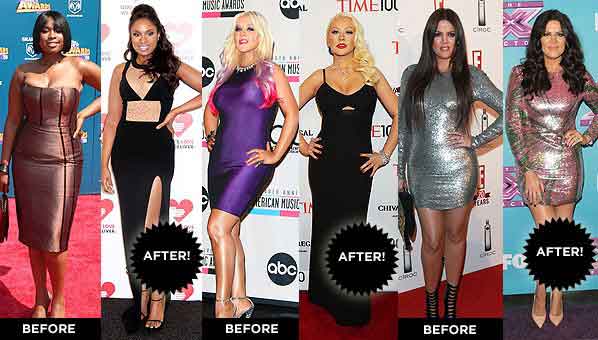However the big question is, are herbal diet pills safe and effective? The answer to this question is yes and no. Yes, because a small percentage of slimming tablets are safe and effective. No, because around 90% of slimming tablets available are not effective and within that 90% around 20% are dangerous.

Therefore as a whole that Celebirities Diet Pills leaves all of us with around 70% of diet pills being ineffective, 20% being dangerous and only 10% being safe and effective.
The question probably on your lips now is "why is it that so many inadequate and dangerous slimming capsules are freely that can be purchased online? " The answer is a straightforward but infuriating one; unlike prescription diet pills that are governed by strict rules and regulations, the organic diet pill industry has no governing body to monitor and regulate the manufacturing of weight loss pills. What this means is that quite literally anybody can go and make a herbal weight loss supplement and sell it.
Over the years, there have been many reported situations of men and women experiencing very bad side-effects after taking herbal weight loss supplements, and this is because there were a few cases by which diet pills have been homemade in the garage area or garden shed, by amateurs planning to make a quick buck out of the diet pill phenomenon. These diet supplements have often contained nothing more than fillers such as sawdust, or other bulking agents than have brought to adverse side-effects. However, these cases are very uncommon.
The vast majority of slimming tablets, the 70% that fall under the inadequate category, are made by companies wishing to cash in on the diet pill market which is worth over a billion worldwide. The shortage of rules and regulations allows these businesses to get away with filling their tablets with cheap things that either don't work or are not used in high enough amounts to have any effect. The companies are then allowed to rest and claim that their diet pill contains the best weight loss ingredients.
So how can you distinguish between the safe and effective diet pills and the ineffective and sometimes dangerous scam diet pills? The particular three most crucial features to look out for are certifications, medical backing and trials.
Certifications come mainly in the form of Certificates of Research which provide evidence that a weight loss supplement contains the ingredients that it claims to have. Medical backing means that respected doctors and health experts has analysed the weight loss health supplement and believe it is safe to use. They also assume that it is effective for weight loss when utilized in conjunction with exercise and a healthy diet. Clinical trials mean that a slimming tablet has undergone scientific and scientific testing and that there is evidence to support their claim for aiding weight loss.
Another key feature to look out for is where the diet pill is manufactured. The majority of diet pills are produced in Asia, high the guidelines governing the production of weight loss supplements are incredibly lax. Diet plan pills that are performed in the US are subject to some laws and restrictions. However, slimming tablets made in the UK or within the EU are governed by quite stringent laws on safety and efficacy.
To conclude, we come back to the question "are herbal diet pills safe and effective? " In a nutshell, the vast majority are ineffective, a few could be very dangerous and only around 10% are safe and effective. To find that 10% make sure that a pill has certifications, medical backing, clinical trials and that it is produced in the US, the UK and also the EU.
No comments:
Post a Comment